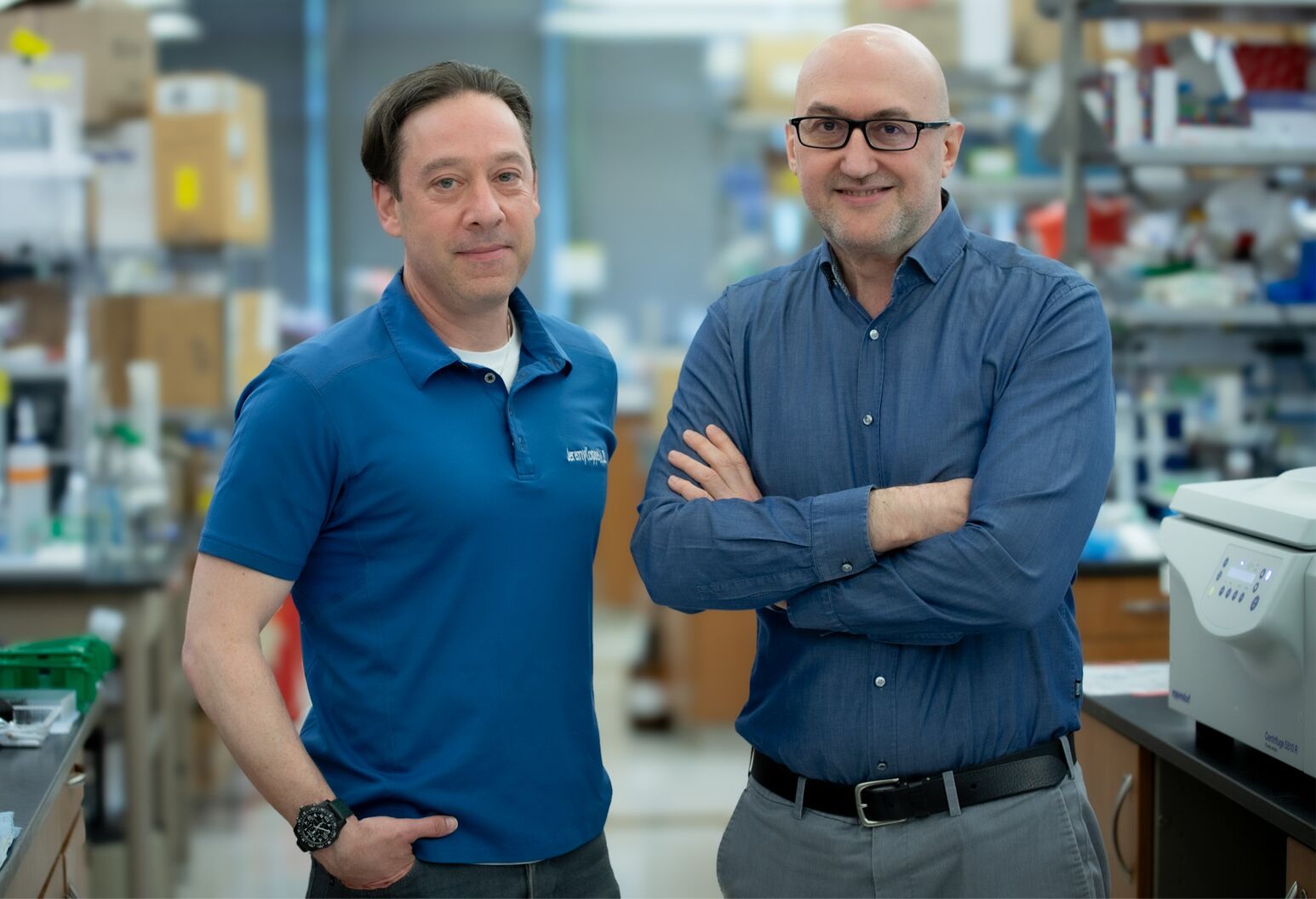The Feinstein Institutes—the research institutes of Northwell Health, New York’s largest health care provider—is home to 50 research labs, 3,000 clinical research studies and 5,000 people raising the standard of medical innovation. We make breakthroughs in molecular medicine, genetics, cancer, brain research, mental health, autoimmunity and bioelectronic medicine.
The latest
Feinstein Institutes study identifies Alzheimer's disease blood biomarkers

The results could one day lead to earlier detection of and care for Alzheimer's
By 2060, it’s estimated that 14 million people will be living with Alzheimer's disease, 40% of whom will experience psychotic symptoms. Today, researchers from the Feinstein Institutes for Medical Research published findings in the Journal of the American Medical Association (JAMA) Psychiatry that show an increase in specific tau proteins throughout the disease, indicating that these blood biomarkers could be used to detect psychotic symptoms in AD patients.
The research – led by Jeremy L. Koppel, MD, associate professor, and Jesus J. Gomar, PhD, assistant professor, in the Feinstein Institutes’ Institute of Molecular Medicine — looked at 752 participants with a diagnosis of Alzheimer's disease or mild cognitive impairment. They looked at the presence of Plasma tau phosphorylated at threonine 181 (ptau181) and Neurofilament light chain (NfL), which have both been studied and proven to be molecular biomarkers associated with Alzheimer's disease neurodegeneration. They studied the connection over time between plasma levels of ptau181 and NfL and the occurrence or development of delusions and hallucinations in people with Alzheimer's disease and found that increased levels of both were present and can be used as biomarkers for psychotic symptoms in Alzheimer's disease. The participants’ information was collected from the Alzheimer's Disease Neuroimaging Initiative (ADNI).
“Psychosis is exceptionally prevalent in people with Alzheimer's disease, and there is a need to easily detect a person's risk for developing those behaviors to intervene and improve care ultimately,” said Dr. Koppel, a geriatric psychiatrist. “This study’s results show that elevated plasma levels of specific tau proteins may serve as a biomarker and open up the doors to develop an easily accessible and accurate blood test to identity psychotic risk in these patients.”
This study found that individuals with Alzheimer's disease who either had or would develop psychosis had higher plasma levels of ptau181 and NfL compared to those with Alzheimer's disease without psychosis. The levels of plasma ptau181 rose before the onset of psychosis and then decreased. However, these effects were less pronounced when looking at individuals with other tau-related conditions like primary age-related tauopathy (PART), where ptau181 levels are lower than in Alzheimer's disease.
“Millions of people with Alzheimer's disease need more targeted and effective diagnosis and treatments, as well as a deeper insight into its molecular mechanisms,” said Kevin J. Tracey, MD, president and CEO of the Feinstein Institutes and Karches Family Distinguished Chair in Medical Research. “Drs. Koppel and Gomar’s new research shows the potential for a blood diagnostic test to identify the condition and advance our understanding of this complex and debilitating disease.”
The research detailed clinical characterization and measurement of the plasma proteins over four years. This work helps set the foundation for even more longitudinal studies and the measurement of other related tau proteins, like ptau217.
Dr. Koppel is an internationally recognized clinical scientist who continues to identify Alzheimer's disease's potential causes and treatments. He recently received a National Institutes of Health (NIH) grant for nearly $500,000 to look at ptau181 and other biomarkers in psychosis before Alzheimer's disease begins and a $1 million grant from the Alzheimer's Foundation of America to expand research into developing new treatments to address the hallucinations, delusions and aggression that come with dementia that funded his work on the current study.
In 2022, he published papers about the role of dopamine, tau, the increase in psychosis, and the formation of tau through positron emission tomography (PET) scans.



